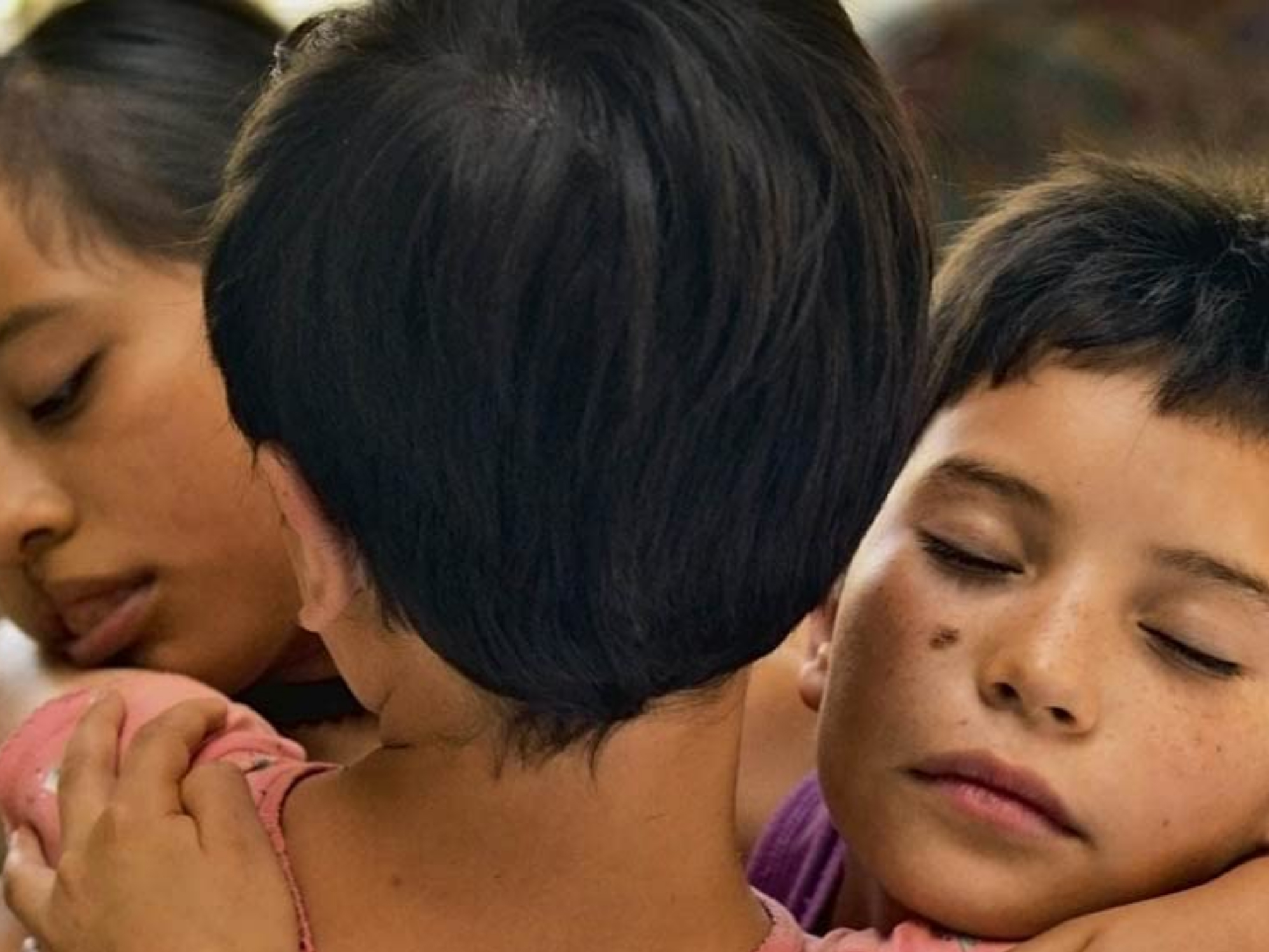
- Golden Globe Awards
Prayers for the Stolen (Mexico)
The terror comes during nighttime. Amid the sounds of nature, the birds, insects, barking dogs and mooing cows, it is the revved-up engines of black SUVs in the distance but coming closer that send the young girls into hiding. “They are coming,” one utters. They shall not be named; they are too scary. Rita (Mayra Batalla) tells her seven-year-old daughter Ana (Ana Cristina Ordóñez González) to hide in a hole in the ground that she covers with branches and leaves. All mothers do that. It is all they can do. And hope and pray that their girls will not be discovered by ‘them.’ They also cut off their long hair to pass them off as boys during the daytime. There are no men in this remote village in the mountains of Guerrero. They are all “over there” as one worn-out woman says, describing America. Most have new families, hardly any send financial support. They cannot be counted on.
The story is told through the eyes of Ana, who along with her two best friends Paula and Maria create their own little world in this grim place. They are much closer to each other than the grown-ups in their lives whose disillusioned silence weighs heavy on them. The girls’ bond is strong, but constant fear dominates everything, from going to school to playing in the dirty yards. What they are most afraid of, though, is getting their period because this means they can no longer pass as boys.
The film is separated into two halves, the second part taking place a few years later with the trio being played by older actresses. The danger intensifies with age, and they know it. Director Tatiana Huezo uses very little dialogue and focuses on looks, gestures, sounds and close-ups of the girls’ terrified eyes.
Prayers for the Stolen is based on Jennifer Clement’s fictional novel of the same title that won her the NEA Fellowship for Literature, the Dublin Literary Award and the Sara Curry Humanitarian Award. Unlike the film, the book centers more on the childhood part of the girls’ story. Clement herself is half Mexican. In her novel, the lead character is not called Ana but Ladydi for her mother’s obsession with Princess Diana.
Huezo, a Salvadorean-Mexican, started out as a documentary filmmaker which is fitting for this story that has a very timely real-life background: the ongoing human rights violations against women and girls in Mexico who are caught in the wars between the drug cartels, who become victims of international sex-trafficking and are often simply ‘disappeared.’ This is happening to tens of thousands, some dead bodies reappearing, hung from bridges, a very high number of them female. They serve as a warning to others who do not comply with the rules of the crime bosses. There is no help from a police force whose members have often been corrupted by the drug lords and paid off.
Prayers for the Stolen was selected to compete in the Un Certain Regard section of the Cannes Film Festival last June and received a special mention from the jury. It is also the official Mexican entry for the Academy Awards.